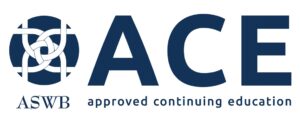Due to the various barriers that children and adolescents often experience when accessing in-person mental healthcare (e.g., stigma, transportation, cost, insurance), digital interventions have been identified as an alternate and promising modality to facilitate evidence-based intervention service delivery for young people. Youth digital mental health interventions (DMHIs) are defined in this presentation as publicly available, online self-administered intervention programs that do not require a clinician or caregiver to implement. This area of literature is rapidly growing and specifically supports the effectiveness of the modification of cognitive-behavioral therapy into a digital/blended self-administered format. This presentation will outline the general evidence-base of youth DMHIs across settings, with a focus on CBT-based DMHIs and general best practices based on the current state of the literature. Specific guidance will be provided regarding which subpopulations of children and adolescents may be good candidates for DMHIs, along with subpopulations with less evidentiary support. Additionally, this presentation will provide introductory guidance for providers regarding how to use DMHIs within stepped models of care across various care settings (i.e., integrated pediatric primary care settings, schools, etc.). Further, this presentation will discuss practical considerations and limitations of using these tools in real world clinical and school settings, with step-by-step recommendations for ways to put these tools into practice. Finally, the DMHI literature will be discussed within the larger context of culturally sensitive behavioral and mental healthcare.
Presented by: Maddy Esterer
 |
Maddy has a Master's degree in School Psychology and is a Provisionally Licensed Mental Health Practitioner in Nebraska. Maddy will be earning her PhD in School Psychology in 2024. Maddy currently works for the Munroe-Meyer Institute providing behavioral health services to youth, adolescents, and families in an integrated primary care setting. Maddy has experience providing behavioral and mental health supports to youth in schools and primary care settings in both Michigan and Nebraska. Maddy is also a team member of the Mid-America Mental Health Technology Transfer Center (MHTTC) Network, which assists mental health programs and providers in establishing evidence-based programs that are locally supported and sustainable in the Mid-America region. Maddy has been building her expertise in digital interventions for mental health for several years, which complements her other interests in trauma-informed care and equitable service provision across school and clinical settings.
|
Target Audience
This accredited continuing education activity is designed for licensed mental health providers, physicians, and social workers.
Global Objectives
Accredited Continuing Education
 |
In support of improving patient care, University of Nebraska Medical Center is jointly accredited by the Accreditation Council for Continuing Medical Education (ACCME), the Accreditation Council for Pharmacy Education (ACPE), and the American Nurses Credentialing Center (ANCC), to provide continuing education for the healthcare team.
|
Physicians
The University of Nebraska Medical Center designates this live activity for a maximum of 1.0 AMA PRA Category 1 Credits™. Physicians should claim only the credit commensurate with the extent of their participation in the activity.
Psychologists/ Licensed Mental Health Providers
 |
Continuing Education (CE) credits for psychologists are provided through the co-sponsorship of the American Psychological Association (APA) Office of Continuing Education in Psychology (CEP). The APA CEP Office maintains responsibility for the content of the programs. This activity has been approved for 1.0 credit hour of continuing education credit.
|
Social Workers
 |
As a Jointly Accredited Organization, University of Nebraska Medical Center is approved to offer social work continuing education by the Association of Social Work Boards (ASWB) Approved Continuing Education (ACE) program. Organizations, not individual courses, are approved under this program. Regulatory boards are the final authority on courses accepted for continuing education credit. Social workers completing this course receive 1.0 clinical continuing education credit. The content level of this activity is intermediate. |